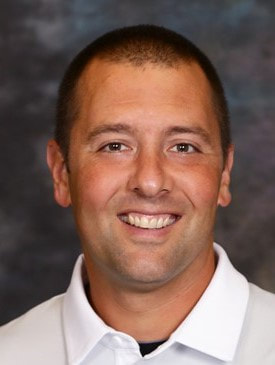|
Real Dudes,
Last week I posted an article on Cultural Relativism. As I was looking through some John Cooper sites on-line, I ran across this article and thought it’d make for a perfect follow-up to the previous posting. This article is about the effects of Cultural Relativism, and Deconstruction Stories – Influential “Christian” Leaders who are “Nicely” Falling away from their faith and families and attempting to take followers with them…leading them astray. Notice who John Cooper is calling out and what he feels such leadership should be teaching and encouraging. Skillet’s John Cooper is Deconstructing Deconstruction Robyn Roste January 28, 2021 For more than 20 years Skillet’s frontman John Cooper has entertained audiences as lead singer with his message of positive Christian rock. While Cooper has always been outspoken in his faith, over the past year he has taken to social media more and more to battle cultural relativism, which he says has infected the church and modern Christianity. On January 10, Cooper released a “Ten Minute Talk” leaving no room to wonder where he stands politically or spiritually as he urged Christians to “open your eyes and see what’s happening.” Cooper took some heat online for his stance, but he stands behind it and was recently interviewed on Alisa Childers’ podcast where they discussed cultural relativism and the recent trend of “deconstruction,” in many Christian circles, which has seen many Millenials walk away from the church, and their faith. Click on this Link to watch and listen to this interview. Deconstructing Deconstruction Childers’, who was formerly of the Christian pop group ZOEgirl, has played shows with Cooper in the past. They lost touch over the years, but reconnected after his viral Facebook post from August 2019. “It was fire,” she said about the post, saying it vocalized what everyone else was thinking about the string of deconstruction stories and wondering what was happening in Christianity. The term “deconstruction” comes from the Emerging Church Movement, which has led to many Christians stepping away from their faith and rejecting God altogether. Cooper said he wrote the Facebook post because he was wondering where all the pastors were and why they weren’t speaking up more about “the insane things people are saying.” Both Cooper and Childers know many musicians within the Contemporary Christian Music scene who have lost their faith and announced it on their public platforms. One of the more recent “deconstruction” stories is from May 22, when Hawk Nelson frontman Jon Steingard announced he no longer believed in God. Cooper said these worship leader deconstruction posts are very confusing to people, and his goal was to help people understand what was happening. Describing these moments as “gut punch after gut punch,” Cooper said it is church leaders’ responsibility to help Millennials who are going through these faith crises understand good theology and where to look for answers. He added how our culture has to stop looking to worship leaders and thought leaders as the relevant influencers in Christendom and to look to theologians and pastors for the old wisdom. Passion for Scriptures Cooper’s outspokenness is aimed at reminding Christians to be passionate about the Word of God, and about the Gospel. He wants people to remember that the things they live for are not of this world and that our hope should be in nothing other than Jesus Christ, the hope of the world. In his “Ten Minute Talk” Cooper said when bad things happen, his faith isn’t shaken. “I think we have to understand that sometimes God purposes us to go through bad things in order that the Gospel is advanced. To bring glory to His name, I don’t know why. That’s the way God wants it.” https://faithstrongtoday.com/robynroste/skillets-john-cooper-is-deconstructing-deconstruction Indeed, some individuals are not clear representatives of Christ (they are neither heavenly minded, nor are they of earthly good when it comes to advancing His Kingdom). Realize this, they aren’t leaving Christianity, for they were never a genuine Christ-Follower to begin with. Therefore, please don't judge genuine Christ-followers based on what the pseudo-Christians do and say. Remember, Satan is subtly working even in the lives of the people who enter the Church doors. The responsibility of the genuine follower-of-Christ is to continue in the faith, keep growing in the knowledge of Him, spreading that knowledge (truth) to our upcoming generations, and finishing the race well for His glory. All alarms are sounding right now…Cultural Relativism and Deconstructionism are real concepts within our very own community…according to the verses below where do these paths lead to? What should that cause you to want to do for our leaders, fellow lay-people, relatives, spouses, children, grandchildren, and churches? As the Apostle Paul said in Colossians 1:3a (NLT), “We always pray for you…” Practicing His Presence, Nate Isaiah 9:16
1 John 2:19 (ESV) They went out from us, but they were not of us; for if they had been of us, they would have continued with us. But they went out, that it might become plain that they all are not of us. Mark 8:36-38 (NLT) 36 And what do you benefit if you gain the whole world but lose your own soul?[a] 37 Is anything worth more than your soul? 38 If anyone is ashamed of me and my message in these adulterous and sinful days, the Son of Man will be ashamed of that person when he returns in the glory of his Father with the holy angels.” Colossians 1:23 (NLT) But you must continue to believe this truth and stand firmly in it. Don’t drift away from the assurance you received when you heard the Good News. The Good News has been preached all over the world, and I, Paul, have been appointed as God’s servant to proclaim it. Song: Lose My Soul by Toby Mac
0 Comments
Real Dudes,
The attached image is taken from The New York Times. The image pretty much speaks for itself. Makes me think of many Christians…they would rather not be disturbed in life. Whether they don’t want to speak into others, or they don’t want to be spoken into by God or godly influences. Some make it as obvious as someone wearing headphones, others avoid group settings and people altogether. Let me encourage you to be approachable and then be willing to speak Christ into the life of another person as the Holy Spirit allows and directs. Practicing His Presence, Nate Real Dudes,
I had a Professor at Bible College ask our class one time, “Can someone be so Heavenly minded that they’re of no earthly good?” Below is a solid answer to this question from gotquestions.org…just something to think about over the weekend. Practicing His Presence, Nate QUESTION Is it possible to be so heavenly minded that you are of no earthly good? ANSWER Oliver Wendell Holmes, Sr., is attributed with the quote “Some people are so heavenly minded that they are of no earthly good.” The same sentiment found its way into a song by Johnny Cash: “You’re shinin’ your light, and shine it you should, / But you’re so heavenly minded you’re no earthly good” (“No Earthly Good,” from The Rambler, 1977). The criticism that some Christians are “so heavenly minded that they are of no earthly good” is a catchy turn of phrase, but is it warranted? The accusation that some Christians are too heavenly focused and therefore not paying enough attention to earthly matters is based on a false premise, namely, that love of God makes one less capable or less concerned with the practical affairs of the world. Being “heavenly minded” does not result in isolating oneself from the world, ignoring contemporary issues, or declining to be involved. Just the opposite: being heavenly minded results in attempting to please God, who has given us work to do in this world. Committed, heavenly minded Christians have always tackled the social, environmental, and political problems of the day. Some of the most impactful people in history have been Christians whose faith moved them to action. As C. S. Lewis states in Mere Christianity, “If you read history you will find that the Christians who did most for the present world were just those who thought most of the next” (HarperCollins, 2001, p. 134). Devoted Christians such as John Newton and William Wilberforce worked tirelessly to abolish the slave trade in England. Christians such as missionary Amy Carmichael, philanthropist George Mueller, and journalist Robert Raikes rescued children in peril, founded orphanages, and established schools. History is full of Christians who positively impacted the world. Their motivation was not simply the need for social reform; rather, they were compelled to do what they did by their strong faith in Jesus and their heavenly focus. It is the very fact that Christians are “heavenly minded” that causes them to help others while spreading the life-changing truth of the gospel. The Bible insists that Christians be focused on heavenly things: “So we fix our eyes not on what is seen, but on what is unseen, since what is seen is temporary, but what is unseen is eternal” (2 Corinthians 4:18). When Christians have their eyes set on Christ, they gain an eternal perspective, and they are of great “earthly good” as their faith impacts their lives and the lives of others (Colossians 3:2; Hebrews 12:1–3). Scripture teaches that good deeds naturally follow when a person places faith in Jesus Christ (James 2:18). Christians serve the Lord and positively impact the world because of their hope of eternity with Him (1 Corinthians 15:58). True religion involves helping orphans and widows in their distress (James 1:27), doing to others as we would have them do to us (Luke 6:31), giving to those in need (Proverbs 19:17; Acts 20:35), dealing honestly in business (Leviticus 19:11), treating animals humanely (Proverbs 14:21), and proclaiming freedom to those who are enslaved by sin (Ephesians 1:7). A truly heavenly minded Christian is one who lives out his or her faith in service to the Savior and who wants to act justly, love mercy, and walk humbly with God (Micah 6:8). It is the earthly minded who accomplish nothing of eternal value. People who are earthly minded are of the world and seek after its desires, which are not from God (1 John 2:15). Being earthly minded is short-sighted: “The world and its desires pass away, but whoever does the will of God lives forever” (1 John 2:17). It is those who are focused on serving Christ and bringing Him glory who will make a lasting impact on earth and for eternity (see Matthew 6:19–21). https://www.gotquestions.org/heavenly-minded-earthly-good.html Satan is very subtle in his approach to twist the truth ever so slightly. Not only does he work to trip individuals up spiritually, but he also attempts to trip us up as an entire community. Maybe not all at once, but in time he attempts to cause many within a community to buy into one little lie at a time…causing some to blend in, some to not ruffle any feathers, some to say “if I can’t beat them, then I’ll join them.” Sadly enough, the community can take on a very ungodly identity/reputation, and there becomes a willingness to compromise and possibly abandon biblical absolute truths for the sake of appeasing some individuals within a community.
Today I’d like to introduce you to a concept that you might not be too familiar with…it’s called cultural relativism. Consider the article from gotquestions.org below and ask yourself afterwards, “have I been sucked into participating in the concept of cultural relativism within my own community?” In other words, "have I naively taken on / adopted some of the ungodly practices and beliefs of my community?" And, “how would God have me apply the following passages Romans 12:2, 2 Corinthians 6:17, James 4:4, and 1 Peter 1:13-17?” Practicing His Presence, Nate What is cultural relativism? Answer Cultural relativism is the view that all beliefs, customs, and ethics are relative to the individual within his own social context. In other words, “right” and “wrong” are culture-specific; what is considered moral in one society may be considered immoral in another, and, since no universal standard of morality exists, no one has the right to judge another society’s customs. Cultural relativism is widely accepted in modern anthropology. Cultural relativists believe that all cultures are worthy in their own right and are of equal value. Diversity of cultures, even those with conflicting moral beliefs, is not to be considered in terms of right and wrong or good and bad. Today’s anthropologist considers all cultures to be equally legitimate expressions of human existence, to be studied from a purely neutral perspective. Cultural relativism is closely related to ethical relativism, which views truth as variable and not absolute. What constitutes right and wrong is determined solely by the individual or by society. Since truth is not objective, there can be no objective standard which applies to all cultures. No one can say if someone else is right or wrong; it is a matter of personal opinion, and no society can pass judgment on another society. Cultural relativism sees nothing inherently wrong (and nothing inherently good) with any cultural expression. So, the ancient Mayan practices of self-mutilation and human sacrifice are neither good nor bad; they are simply cultural distinctives, akin to the American custom of shooting fireworks on the Fourth of July. Human sacrifice and fireworks—both are simply different products of separate socialization. In January 2002, when President Bush referred to terrorist nations as an “axis of evil,” the cultural relativists were mortified. That any society would call another society “evil” is anathema to the relativist. The current movement to “understand” radical Islam—rather than to fight it—is a sign that relativism is making gains. The cultural relativist believes Westerners should not impose their ideas on terrorists, including the idea that the suicide bombing of civilians is evil. Islamic belief in the necessity of jihad is just as valid as any belief in Western civilization, the relativists assert, and America is as much to blame for the attacks of 9/11 as are the terrorists. Cultural relativists are generally opposed to missionary work. When the Gospel penetrates hearts and changes lives, some cultural change always follows. For example, when Don and Carol Richardson evangelized the Sawi tribe of the Netherlands New Guinea in 1962, the Sawi changed: specifically, they gave up their long-held customs of cannibalism and immolating widows on their husbands’ funeral pyres. The cultural relativists may accuse the Richardsons of cultural imperialism, but most of the world would agree that ending cannibalism is a good thing. (For the complete story of the Sawis’ conversion as well as an exposition of cultural reform as it relates to missions, see Don Richardson’s book Peace Child.) As Christians, we value all people, regardless of culture, because we recognize that all people are created in the image of God (Genesis 1:27). We also recognize that diversity of culture is a beautiful thing and differences in food, clothing, language, etc., should be preserved and appreciated. At the same time, we know that because of sin, not all beliefs and practices within a culture are godly or culturally beneficial. Truth is not subjective (John 17:17); truth is absolute, and there does exist a moral standard to which all people of every culture will be held accountable (Revelation 20:11-12). Our goal as missionaries is not to westernize the world. Rather, it is to bring the good news of salvation in Christ to the world. The Gospel message will kindle social reform to the extent that any society whose practices are out of step with God’s moral standard will change—idolatry, polygamy, and slavery, for example, will come to an end as the Word of God prevails (see Acts 19). In amoral issues, missionaries seek to preserve and honor the culture of the people they serve. Last time I mentioned the Parable of the Prodigal Son. I feel led to drive this point home a little more today and trust you’ll find hope in what you read. I want to encourage us to consider the other two parables that we find within the exact same chapter (Luke 15). Consider the same point that God continues to flash in front of us.
In verses 1-7 we read about The Parable of the Lost Sheep. In this paragraph it is God, the Good Shepherd, Who is going after His lost sheep in hopes that His sheep will repent and come home. Verse 6 says, “And when he comes home, he calls together his friends and his neighbors, saying to them, ‘Rejoice with me, for I have found my sheep that was lost.’” Sound like the Prodigal Son Parable? This is God Who is in fact actively and continuously going after His lost sheep. In verses 8-10 we read about The Parable of the Lost Coin. Similarly, a coin was lost, but now is found. God again rejoices over a repentant child and says in verse 9, “‘Rejoice with me, for I have found the coin that I had lost.’” The Parable of the Prodigal Son follows directly after each of those two parables, and we read in verse 24 that the Son “was lost, and is found.’ And they began to celebrate.” Why? Because the Son was repentant. The son turned from his sin and to His Father. In each of the parables within Luke 15 God is driving home the same point. It is He Who is pursuing the lost and unrepentant. He is actively going after each one in hopes that he or she will repent and return home. Trust that God’s got this and remember that your situation isn’t unique…it’s hurtful and hard, but you’re not alone in this. Many parents have felt the ache of experiencing a “prodigal son” story situation. Again, this doesn’t mean that we can’t have a passion for the lost…that’s healthy for us because it proves the worth the child has in our life. I guess my point is that we need be cautious that we don’t attempt to insert ourselves into the role that the Lord possesses. The lost never go unnoticed in His eyes. By allowing God to do His work in the lives of the lost we allow ourselves an opportunity to have that weight removed off our shoulders. Both Proverbs 22:6 and Ephesians 6:4 remind parents to bring their children up in the Lord and in the way they should go…which is God-ward. Much like a coach…come game time the athlete is the one going out and performing what he's been taught...the coach just tries to help put him or her in a position to succeed. As parents, we can set them up for success, and we can be there for them when they make poor life choices, but just keep in mind what God is actively doing in the life of your child. He won’t give up on him or her, just like He’s never given up on any one of us. Practicing His Presence, Nate Debbie McDaniel provides for us “A Prayer for the Lost and the Prodigal Dear God, You know our hearts, you hear our prayers, and care about all that concerns us. You understand the burden we carry and how we want, more than anything, to see our loved ones come to you. Help us to remember that you love them more than we ever could. And you desire to extend your great love and forgiveness, your mercy and hope. Thank you that nothing is too difficult for you. Thank you that your power is unlimited and you came to set the captives free. Thank you that you wait, arms open, for the prodigal to return, that you look for his arrival to lavishly celebrate that he’s come home. We praise you for you are Redeemer and Rescuer, Savior and Lord. We know and believe that there’s no pit so deep that your love can’t reach us still. We understand that your mercies are new every morning, and your faithfulness is great. Lord, we ask that you would halt the plans of the enemy over these we love as we bring them before you right now. We pray that his schemes be demolished and that your plans for good, for a future and hope, would prevail. Would you open blind eyes that they might see your Truth. Would you rescue those walking in darkness and heal the deep wounds of those who’ve been hurt. We pray for the miraculous intervention of your Spirit to draw them to yourself, to work strong on behalf of our loved ones who are lost and wandering. For you came with good news, to heal the brokenhearted, to proclaim freedom for captives and release for the prisoners. Though we deserved penalty for our wrong, you stood in our place and took the blows on our behalf. You choose to die, so that we can live. Forever and free. Lord, forgive our unbelief. Forgive the times we’ve doubted that you could ever change a distant heart. Forgive our hard-heartedness, our weariness, or forgetfulness to ‘pray continually.’ Thank you that you never give up on us. Remind us of how you’ve changed our own hearts. How your miracle of life and hope has sprung up deep within our souls. We love you Lord, we need you, and we thank you that you hear our prayers and are at work even now. Powerfully. Faithfully. Miraculously. Thank you for the gift of our Savior, God with us. Thank you for your goodness and love… In Jesus’ Name, Amen.” Link to Full Article Song and Hymn:
|
AuthorNate Smith is a husband, a father of 6 girls, grandpa to 3 granddaughters and one grandson, a police and fire chaplain, a pastor, and has a passion to see men grow in Christ. #girldad including granddaughter
Archives
May 2024
Categories |





 RSS Feed
RSS Feed